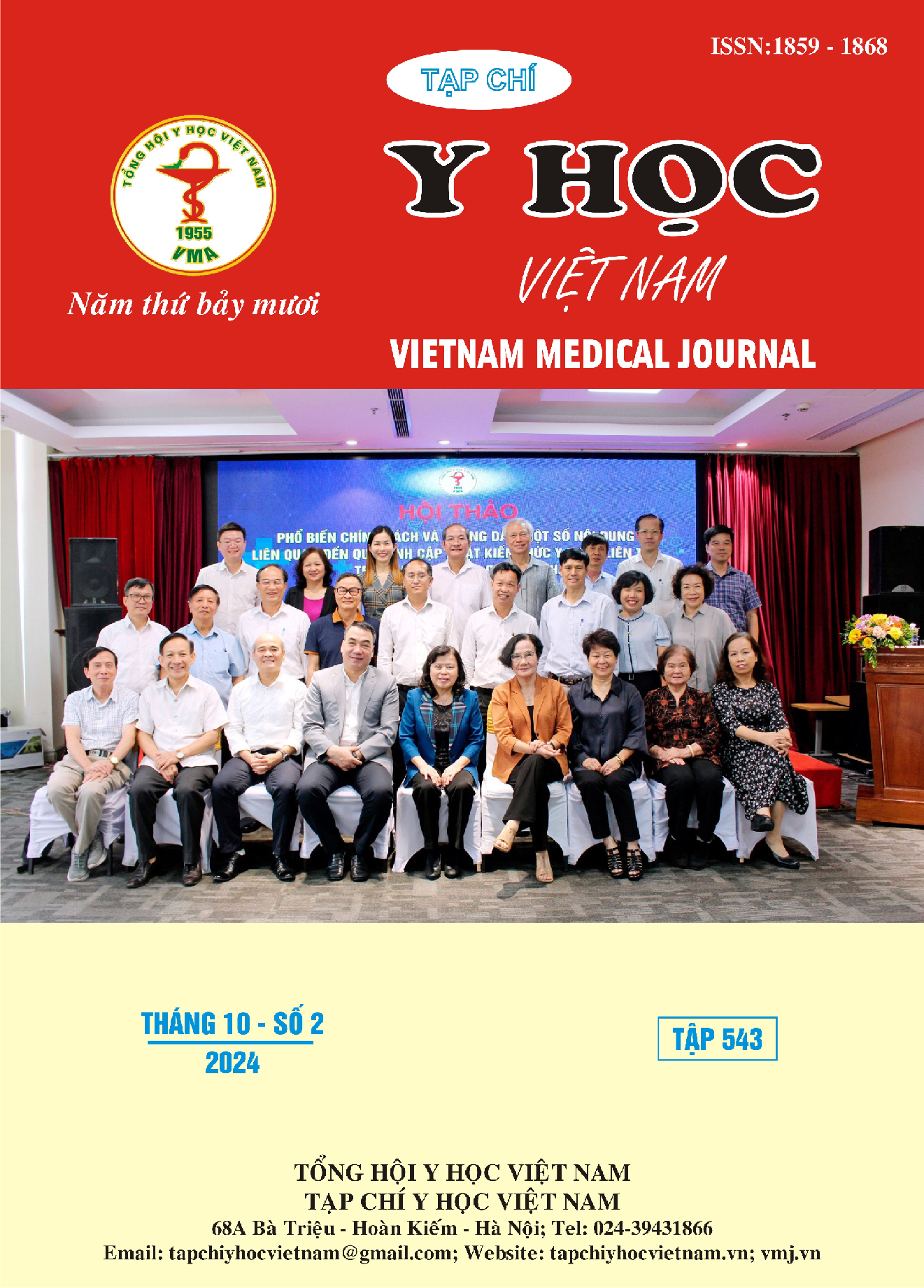NUTRITIONAL STATUS OF DRUG-RESISTANT EPILEPTIC CHILDREN UNDERGOING KETO DIET INTERVENTION AT THE VIETNAM NATIONAL CHILDREN,S HOSPITAL
Main Article Content
Abstract
Objective: To assess the nutritional status of patients with drug-resistant epilepsy undergoing a ketogenic diet intervention at the Neurology Center, Central Children's Hospital, from 2023 to 2024. Research Method: Cross-sectional descriptive study. Results: For the one-year study, 40 children diagnosed with drug-resistant epilepsy were prescribed a ketogenic diet. The average age of the children was 6.4 ± 4.2 years (ranging from 2 months to 15.7 years). The two most common types of epilepsy observed were atonic seizures (22.5%) and focal seizures (17.5%). Nutritional issues included mild underweight (15%), wasting (27.5%), and stunting (20%); 10% of the children were overweight or obese. However, only 26 children adhered to the ketogenic diet for 3 months. After 3 months on the ketogenic diet, there was an improvement in nutritional status: the rate of underweight decreased from 26.1% to 17.4%, and wasting decreased from 23.1% to 11.5%. Before the intervention, 72.5% of the children did not meet their recommended energy intake. Micronutrient deficiencies remained high, particularly for calcium, vitamin D, and iron, with 82.5%, 42.5%, and 25%, respectively. Conclusion: The prevalence of malnutrition and micronutrient deficiencies remains high among children with drug-resistant epilepsy, indicating that their dietary intake still does not meet the recommended nutritional needs.
Article Details
Keywords
Refractory epilepsy, ketogenic diet, nutritional status
References
2. A national profile of childhood epilepsy and seizure disorder - PubMed. Accessed June 22, 2023. https://pubmed.ncbi.nlm.nih.gov/22271699/
3. Gragnani A, Müller BR, Oliveira AF, Ferreira LM. Burns and epilepsy--review and case report. Burns. 2015;41(2):e15-18. doi:10.1016/ j.burns.2014.08.004
4. Refractory status epilepticus: frequency, risk factors, and impact on outcome - PubMed. Accessed June 22, 2023. https://pubmed.ncbi.nlm.nih.gov/11843690/
5. Kossoff EH, Zupec‐Kania BA, Auvin S, et al. Optimal clinical management of children receiving dietary therapies for epilepsy: Updated recommendations of the International Ketogenic Diet Study Group. Epilepsia Open. 2018;3(2):175-192. doi:10.1002/epi4.12225
6. Hậu NTT, Thư NTM, Hoa NHN, Nguyên LTK. Chế độ ăn sinh Ceton trong điều trị động kinh kháng trị tại Bệnh viện Nhi đồng 2. TCNCYH. 2021;146(10):20-28. doi:10.52852/tcncyh.v146i10.333
7. Kim JA, Yoon JR, Lee EJ, Lee JS, Kim JT, Kim HD, Kang HC. Efficacy of the Classic Ketogenic and the Modified Atkins Diets in Refractory Childhood Epilepsy. Epilepsia. 2016 Jan;57(1):51-8. Doi: 10.1111/Epi.13256. Epub 2015 Dec 10. PMID: 26662710.
8. Martin K, Jackson CF, Levy RG, Cooper PN. Ketogenic diet and other dietary treatments for epilepsy. Cochrane Database of Systematic Reviews 2016, Issue 2. Art. No.: CD001903. DOI: 10.1002/14651858.CD001903.pub3. Accessed 08 September 2024.
9. Bertoli S, Cardinali S, Veggiotti P, Trentani C, Testolin G, Tagliabue A. Evaluation of nutritional status in children with refractory epilepsy. Nutr J. 2006 Apr 26;5:14. doi: 10.1186/1475-2891-5-14. PMID: 16640779; PMCID: PMC1550412.
10. The impact of feeding problems on growth and energy intake in children with cerebral palsy - PubMed. Accessed June 22, 2023. https://pubmed.ncbi.nlm.nih.gov/1782919/


